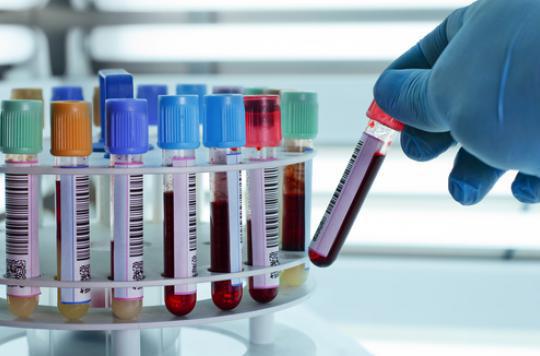The genetic mutations identified in the metastatic form of prostate cancer pave the way for new screening tests.

The weight of hereditary genetic factors in prostate cancer is far greater than previously thought, suggests a study published last week in the New England Journal of Medicine. Genetic predispositions which would contribute to the development of the metastatic form.
With more than 53,000 new cases each year and less than 9,000 deaths, prostate cancer is the most common in men and the 4th cause of death from cancer in France.
Despite its incidence, the causes of this disease are still poorly understood. But genetic mutations would play an important role, especially those found in genes responsible for repairing DNA damage, such as BRCA1 or BRCA2.
About twenty genes affected
More than 10% of men suffering from metastatic cancer carry at least one mutation in one of the 20 DNA repair genes, this work reveals. This proportion is twice as high as in men with localized prostate cancer, and four times higher than in the general population. In addition, men with advanced stages are 18 times more likely to carry a mutation in the BRCA2 gene than healthy men.
To reach “these surprising conclusions”, American researchers at the University of Washington, in collaboration with the oncology research center Fred Hutchinson and Memorial Sloan Kettering analyzed the genome of 692 patients with metastatic cancer. The data were then compared to patients with localized cancer and healthy volunteers.
The authors stress that the identification of these genetic markers of prostate cancer is an important step towards the development of a more reliable prognostic test than that used today.
The dosage of PSA has sparked a heated debate among specialists as to its reliability and effectiveness, especially because it cannot differentiate between cancer at high risk of metastasis from cancer that is latent and will not progress. “These results therefore provide a convincing argument for updating our screening recommendations to include genetic testing,” says one of the authors, Dr. Peter Nelson of the Fred Hutchinson Oncology Research Center.
Personalized medicine
The researcher also emphasizes that these mutations are not only linked to prostate cancer, like the BRCA genes also associated with breast or ovarian cancer. Also, families who may have inherited one of these mutated genes could benefit from oncogenetic consultation to assess their risk of developing cancer.
This discovery also paves the way for personalized medicine, and opens the way to new avenues of treatment. Men with certain mutations could indeed benefit from a drug already approved for ovarian or breast cancer.
Find the program L’invité santé with the
Prof. François Desgranchamps (Saint-Louis hospital, Paris)
broadcast on March 24, 2016
.

















